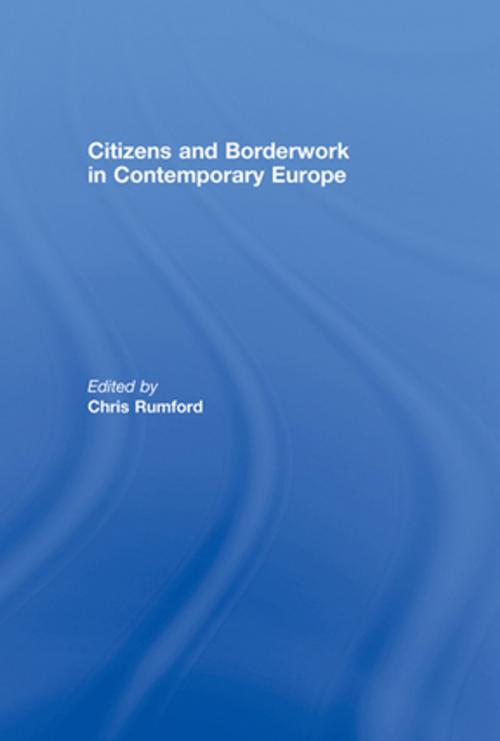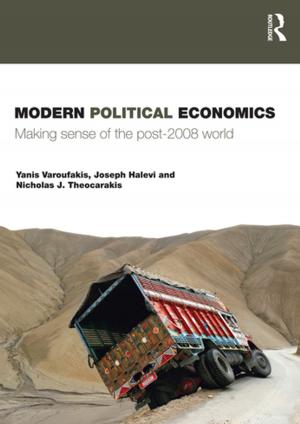Citizens and borderwork in contemporary Europe
Business & Finance, Economics, Foreign Exchange, Nonfiction, Social & Cultural Studies, Political Science| Author: | ISBN: | 9781317968115 | |
| Publisher: | Taylor and Francis | Publication: | October 31, 2013 |
| Imprint: | Routledge | Language: | English |
| Author: | |
| ISBN: | 9781317968115 |
| Publisher: | Taylor and Francis |
| Publication: | October 31, 2013 |
| Imprint: | Routledge |
| Language: | English |
The extent to which ordinary people can construct, shift, and dismantle borders is seriously neglected in the existing literature. The book explores the ability of citizens to participate in the making of borders, and the empowerment that can result from this bordering and debordering activity. ‘Borderwork’ is the name given to the ways in which ordinary people can make and unmake borders. Borderwork is no longer only the business of nation-states, it is also the business of citizens (and indeed non-citizens).
This study of ‘borderwork’ extends the recent interest in forms of bordering which do not necessarily occur at the state’s external borders. However, the changing nature of borders cannot be reduced to a shift from the edges to the interior of a polity. To date little research has been conducted on the role of ordinary people in envisioning, constructing, maintaining, shifting, and erasing borders; creating borders which facilitate mobility for some while creating barriers to mobility for others; appropriating the political resources which bordering offers; contesting the legitimacy of or undermining the borders imposed by others. This book makes an original contribution to the literature and stands to set the agenda for a new dimension of border studies.
This book was published as a special issue of Space and Polity.
The extent to which ordinary people can construct, shift, and dismantle borders is seriously neglected in the existing literature. The book explores the ability of citizens to participate in the making of borders, and the empowerment that can result from this bordering and debordering activity. ‘Borderwork’ is the name given to the ways in which ordinary people can make and unmake borders. Borderwork is no longer only the business of nation-states, it is also the business of citizens (and indeed non-citizens).
This study of ‘borderwork’ extends the recent interest in forms of bordering which do not necessarily occur at the state’s external borders. However, the changing nature of borders cannot be reduced to a shift from the edges to the interior of a polity. To date little research has been conducted on the role of ordinary people in envisioning, constructing, maintaining, shifting, and erasing borders; creating borders which facilitate mobility for some while creating barriers to mobility for others; appropriating the political resources which bordering offers; contesting the legitimacy of or undermining the borders imposed by others. This book makes an original contribution to the literature and stands to set the agenda for a new dimension of border studies.
This book was published as a special issue of Space and Polity.















